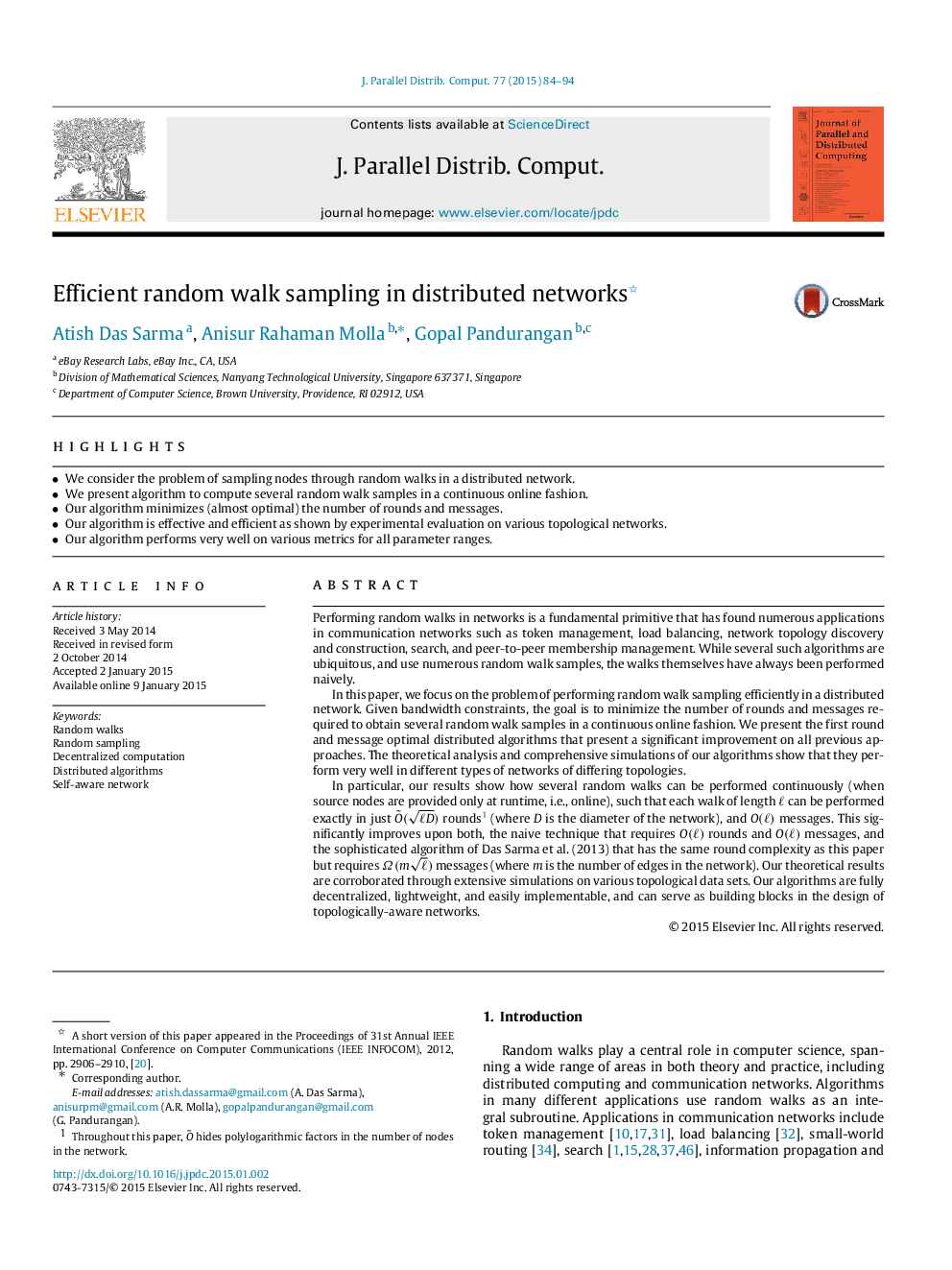| کد مقاله | کد نشریه | سال انتشار | مقاله انگلیسی | نسخه تمام متن |
|---|---|---|---|---|
| 431700 | 688614 | 2015 | 11 صفحه PDF | دانلود رایگان |
• We consider the problem of sampling nodes through random walks in a distributed network.
• We present algorithm to compute several random walk samples in a continuous online fashion.
• Our algorithm minimizes (almost optimal) the number of rounds and messages.
• Our algorithm is effective and efficient as shown by experimental evaluation on various topological networks.
• Our algorithm performs very well on various metrics for all parameter ranges.
Performing random walks in networks is a fundamental primitive that has found numerous applications in communication networks such as token management, load balancing, network topology discovery and construction, search, and peer-to-peer membership management. While several such algorithms are ubiquitous, and use numerous random walk samples, the walks themselves have always been performed naively.In this paper, we focus on the problem of performing random walk sampling efficiently in a distributed network. Given bandwidth constraints, the goal is to minimize the number of rounds and messages required to obtain several random walk samples in a continuous online fashion. We present the first round and message optimal distributed algorithms that present a significant improvement on all previous approaches. The theoretical analysis and comprehensive simulations of our algorithms show that they perform very well in different types of networks of differing topologies.In particular, our results show how several random walks can be performed continuously (when source nodes are provided only at runtime, i.e., online), such that each walk of length ℓℓ can be performed exactly in just Õ(ℓD) rounds1 (where DD is the diameter of the network), and O(ℓ)O(ℓ) messages. This significantly improves upon both, the naive technique that requires O(ℓ)O(ℓ) rounds and O(ℓ)O(ℓ) messages, and the sophisticated algorithm of Das Sarma et al. (2013) that has the same round complexity as this paper but requires Ω(mℓ) messages (where mm is the number of edges in the network). Our theoretical results are corroborated through extensive simulations on various topological data sets. Our algorithms are fully decentralized, lightweight, and easily implementable, and can serve as building blocks in the design of topologically-aware networks.
Journal: Journal of Parallel and Distributed Computing - Volume 77, March 2015, Pages 84–94
